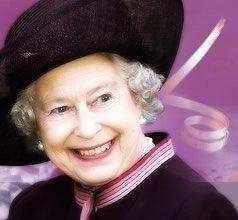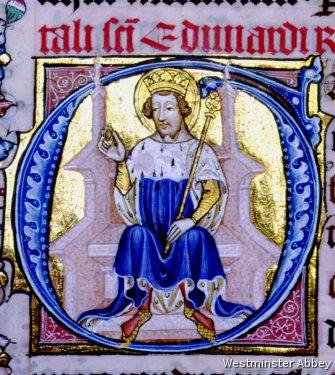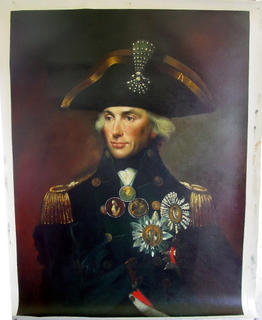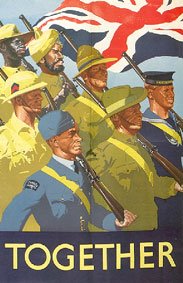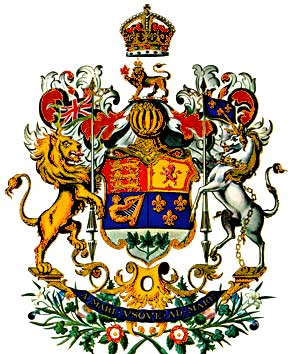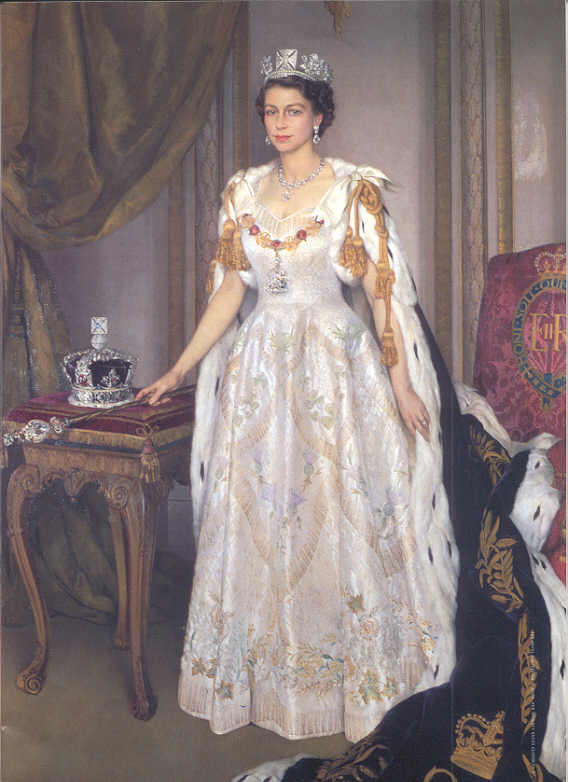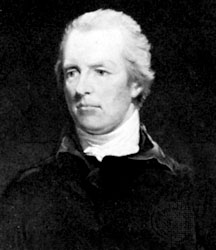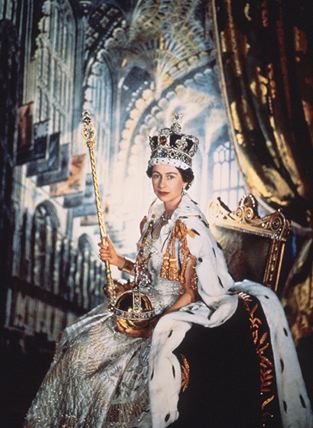[+] HONOURING OUR PATRON, SIR WINSTON CHURCHILL, VICTOR OF THE ENGLISH-SPEAKING PEOPLES
[+] HONOURING OUR QUEEN, ELIZABETH THE SECOND, ON THE 80TH YEAR OF HER BIRTH (1926 - 2006)
[+] HONOURING OUR KING, SAINT EDWARD THE CONFESSOR, ON THE 1000TH YEAR OF HIS BIRTH (1005 - 2005)
[+] HONOURING OUR HERO, LORD NELSON, ON THE BICENTENNIAL OF THE BATTLE OF TRAFALGAR (1805 - 2005)
[+] HONOURING OUR SONS, THE QUEEN'S COMMONWEALTH SOLDIERS KILLED IN THE 'WAR ON TERROR'
[+] HONOURING OUR VETS ON THE 150TH ANNIVERSARY OF THE VICTORIA CROSS (1856 - 2006)
 Peter Hitchens goes a long way to debunk the historical assertion that Britain enjoys a "special relationship" with the United States. He argues that the sentimental twaddle ceaselessly emanating from many in the British political class has never been reciprocated by their American counterparts, at least not to the same embarrassing degree. He infers that American politicians and commentators rarely - if at all - utter the phrase, that American help at crucial moments in Britain's past has been reluctant and that American aims have historically been quietly hostile to British interests. Even when Britain's very survival was at stake during WW2, the United States acted mainly out of self-interest, and that Canada's contribution was far more selfless and far more significant in the convoy duties that fed England during the six-year Battle of the Atlantic.
Peter Hitchens goes a long way to debunk the historical assertion that Britain enjoys a "special relationship" with the United States. He argues that the sentimental twaddle ceaselessly emanating from many in the British political class has never been reciprocated by their American counterparts, at least not to the same embarrassing degree. He infers that American politicians and commentators rarely - if at all - utter the phrase, that American help at crucial moments in Britain's past has been reluctant and that American aims have historically been quietly hostile to British interests. Even when Britain's very survival was at stake during WW2, the United States acted mainly out of self-interest, and that Canada's contribution was far more selfless and far more significant in the convoy duties that fed England during the six-year Battle of the Atlantic.Certainly there is a lot of truth to this. Certainly there is a lot of history that supports this thesis. There's of course the fact that America was the out and right enemy during the War of 1812, and kept military plans for the invasion of Canada right up until WW2. There's the fact that even when Britain ceased to be a serious rival to American power, relations were, from time to time, frosty; be it the Suez Crisis, the UK's neutrality during the Vietnam War, the US's neutrality during the Falklands War, or more recently, America's endorsement of Sinn Fein in the mid 1990s, a blatant intervention in the internal affairs of Northern Ireland. So how special is the relationship really?
Answer: About as special as two self-interested nations will allow. If the "special relationship" is nothing but a bunch of Anglo-American hooey, then so is Hitchen's assertion that it's been a one-way street all along. An argument can easily be made that Britain has been reliably no less self-serving in this regard. If Anglo-American relations are built on the principle of interdependence, surely it would be more true that Britain depended more heavily on the relationship, and used it quite openly to further promote its own affairs in international relations. Like France in the EU, Britain to its credit has leveraged itself in the world by ever so closely aligning itself with the American superpower. Americans might be forgiven if they thought Britain had the most to gain.
As a fact of history though, the United States has enjoyed special relations with a number of countries, a reality that would support Hitchen's thesis that Britain's relationship with the U.S. is not singularly special to the exclusion of all others. In terms of free trade and the largest bilateral economic relationship in the world, the U.S. has a special relationship with Canada. In the Middle East, it has a special relationship with Israel. In the South Pacific, Australia and New Zealand. Churchill who invented the term applied it more generally to the fraternity of the English-speaking peoples and thought they should combine their efforts in matters of mutual interest:
Neither the sure prevention of war, nor the continuous rise of world organization will be gained without what I have called the fraternal association of the English-speaking peoples ...a special relationship between the British Commonwealth and Empire and the United States. Fraternal association requires not only the growing friendship and mutual understanding between our two vast but kindred systems of society, but the continuance of the intimate relationship between our military advisers, leading to common study of potential dangers, the similarity of weapons and manuals of instructions, and to the interchange of officers and cadets at technical colleges. It should carry with it the continuance of the present facilities for mutual security by the joint use of all Naval and Air Force bases in the possession of either country all over the world.
In other words, a good old fashioned military alliance to defeat tyranny wherever it shows its ugly head. Best of friends yes, but also the convergence of national interests and the protection of our shared values. As John Ibbitson writes in the Globe and Mail (Aug. 11): "Every morning, the President of the United States and the Prime Ministers of Britain, Canada and Australia read the same report. The document is prepared by the security services of all four countries. The regional content may vary, but the core intelligence is the same. Throughout the day, the various security services update and comment on the information provided by the others. (New Zealand also participates in anything that doesn't involve nuclear issues.) So, it is hardly surprising that the leaders of the English-speaking nations have virtually identical world views, speak largely with one voice and act mostly in concert. That trust, that shared world view, is why we are, if not winning, at least not losing the war on terror."


